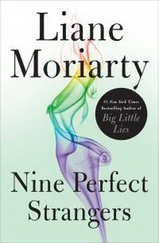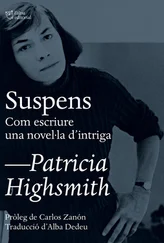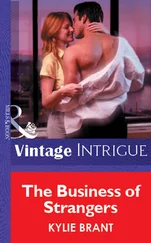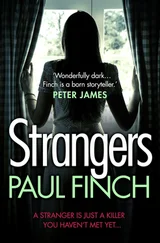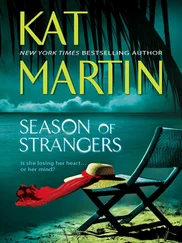“Not near at all. I merely thought of it.” He remembered the sleepless nights, hundreds of them, and the despair of peace unless he avenged himself. Could something have pushed him over the line then? He heard Bruno’s voice mumbling, “You were a hell of a lot nearer than you think, that’s all I can say.” Guy gazed at him puzzledly. His figure had the sickly, nocturnal look of a croupier’s, hunched on shirtsleeved forearms over the table, thin head hanging. “You read too many detective stories,” Guy said, and having heard himself, did not know where the words had come from.
“They’re good. They show all kinds of people can murder.”
“I’ve always thought that’s exactly why they’re bad.”
“Wrong again!” Bruno said indignantly. “Do you know what percentage of murders get put in the papers?”
“I don’t know and I don’t care.”
“One twelfth. One twelfth! Just imagine! Who do you think the other eleven twelfths are? A lot of little people that don’t matter. All the people the cops know they’ll never catch.” He started to pour more Scotch, found the bottle empty, and dragged himself up. A gold penknife flashed out of his trousers pocket on a gold chain fine as a string. It pleased Guy aesthetically, as a beautiful piece of jewelry might have. And he found himself thinking, as he watched Bruno slash round the top of a Scotch bottle, that Bruno might murder one day with the little penknife, that he would probably go quite free, simply because he wouldn’t much care whether he were caught or not.
Bruno turned, grinning, with the new bottle of Scotch. “Come to Santa Fe with me, huh? Relax for a couple days.”
“Thanks, I can’t.”
“I got plenty of dough. Be my guest, huh?” He spilled Scotch on the table.
“Thanks,” Guy said. From his clothes, he supposed, Bruno thought he hadn’t much money. They were his favorite trousers, these gray flannels. He was going to wear them in Metcalf and in Palm Beach, too, if it wasn’t too hot. Leaning back, he put his hands in his pockets and felt a hole at the bottom of the right one.
“Why not?” Bruno handed him his drink. “I like you a lot, Guy.”
“Why?”
“Because you’re a good guy. Decent, I mean. I meet a lot of guys—no pun—but not many like you. I admire you,” he blurted, and sank his lip into his glass.
“I like you, too,” said Guy.
“Come with me, huh? I got nothing to do for two or three days till my mother comes. We could have a swell time.”
“Pick up somebody else.”
“Cheeses, Guy, what d’you think I do, go around picking up traveling companions? I like you, so I ask you to come with me. One day even. I’ll cut right over from Metcalf and not even go to El Paso. I’m supposed to see the Canyon.”
“Thanks, I’ve got a job as soon as I finish in Metcalf.”
“Oh.“The wistful, admiring smile again. “Building something?”
“Yes, a country club.” It still sounded strange and unlike himself, the last thing he would have thought he’d be building, two months ago. “The new Palmyra in Palm Beach.”
“Yeah?”
Bruno had heard of the Palmyra Club, of course. It was the biggest in Palm Beach. He had even heard they were going to build a new one. He had been to the old one a couple of times.
“You designed it?” He looked down at Guy like a hero-worshiping little boy. “Can you draw me a picture of it?”
Guy drew a quick sketch of the buildings in the back of Bruno’s address book and signed his name, as Bruno wanted. He explained the wall that would drop to make the lower floor one great ballroom extending onto the terrace, the louver windows he hoped to get permission for that would eliminate airconditioning. He grew happy as he talked, and tears of excitement came in his eyes, though he kept his voice low. How could he talk so intimately to Bruno, he wondered, reveal the very best of himself? Who was less likely to understand than Bruno?
“Sounds terrific,” Bruno said. “You mean, you just tell them how it’s gonna look?”
“No. One has to please quite a lot of people.” Guy put his head back suddenly and laughed.
“You’re gonna be famous, huh? Maybe you’re famous now.”
There would be photographs in the news magazines, perhaps something in the newsreels. They hadn’t passed on his sketches yet, he reminded himself, but he was so sure they would. Myers, the architect he shared an office with in New York, was sure. Anne was positive. And so was Mr. Brillhart. The biggest commission of his life. “I might be famous after this. It’s the kind of thing they publicize.”
Bruno began to tell him a long story about his life in college, how he would have become a photographer if something hadn’t happened at a certain time with his father. Guy didn’t listen. He sipped his drink absently, and thought of the commissions that would come after Palm Beach. Soon, perhaps, an office building in New York. He had an idea for an office building in New York, and he longed to see it come into being. Guy Daniel Haines. A name. No longer the irksome, never quite banished awareness that he had less money than Anne.
“Wouldn’t it, Guy?” Bruno repeated.
“What?”
Bruno took a deep breath. “If your wife made a stink now about the divorce. Say she fought about it while you were in Palm Beach and made them fire you, wouldn’t that be motive enough for murder?”
“Of Miriam?”
“Sure.”
“No,” Guy said. But the question disturbed him. He was afraid Miriam had heard of the Palmyra job through his mother, that she might try to interfere for the sheer pleasure of hurting him.
“When she was two-timing you, didn’t you feel like murdering her?”
“No. Can’t you get off the subject?” For an instant, Guy saw both halves of his life, his marriage and his career, side by side as he felt he had never seen them before. His brain swam sickeningly, trying to understand how he could be so stupid and helpless in one and so capable in the other. He glanced at Bruno, who still stared at him, and, feeling slightly befuddled, set his glass on the table and pushed it fingers’ length away.
“You must have wanted to once,” Bruno said with gentle, drunken persistence.
“No.” Guy wanted to get out and take a walk, but the train kept on and on in a straight line, like something that would never stop. Suppose Miriam did lose him the commission. He was going to live there several months, and he would be expected to keep on a social par with the directors. Bruno understood such things very well. He passed his hand across his moist forehead. The difficulty was, of course, that he wouldn’t know what was in Miriam’s mind until he saw her. He was tired, and when he was tired, Miriam could invade him like an army. It had happened so often in the two years it had taken him to turn loose of his love for her. It was happening now. He felt sick of Bruno. Bruno was smiling.
“Shall I tell you one of my ideas for murdering my father?”
“No,” Guy said. He put his hand over the glass Bruno was about to refill.
“Which do you want, the busted light socket in the bathroom or the carbon monoxide garage?”
“Do it and stop talking about it!”
“I’ll do it, don’t think I won’t! Know what else I’ll do some day? Commit suicide if I happen to feel like committing suicide, and fix it so it looks like my worst enemy murdered me.”
Guy looked at him in disgust. Bruno seemed to be growing indefinite at the edges, as if by some process of deliquescence. He seemed only a voice and a spirit now, the spirit of evil. All he despised, Guy thought, Bruno represented. All the things he would not want to be, Bruno was, or would become.
“Want me to dope out a perfect murder of your wife for you? You might want to use it sometime.” Bruno squirmed with self-consciousness under Guy’s scrutiny.
Читать дальше




